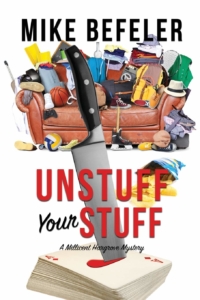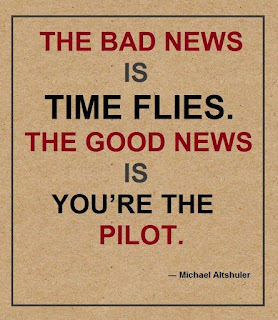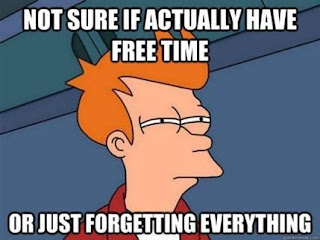Multitasking, Time Management and Organization
 Multitasking, Time Management and Organization
Multitasking, Time Management and Organization
By Donnell Ann Bell
Where’s my keys? Where’s my phone? What did I do with my glasses? Sound familiar?
Many people attribute forgetfulness to advancing years. Me? I attribute forgetfulness to distraction, our busy lives, and the ridiculous notion that if we’re doing multiple things at once, we’re efficient and engaged in time management.
I’m not a fan of multitasking. If you’re doing multiple things at once, chances are you’re in a hurry. Slowing down, focusing on one thing at a time, e.g., concentrating on those keys in your hand, solidifies in your brain where you put them. Even better, if you concentrate on those keys in your hand AND put them in the same place every time, chances are you will find them every time.
It took me a while to figure this out, but now that I put things in a strategic place, I’m less stressed and don’t spend ten minutes trying to recreate my movements. Further, the most amazing thing has happened. I know precisely where everything is and I’m not late anymore!
I’ve been traveling a great deal for the last two years and hopefully will be slowing down. Now that I’m home, I plan on tackling things I’ve left undone. Mainly all the stuff I’ve crammed into closets, promising myself I’ll get to it later. Well, my friends, it’s later! And to say I’m organized would be complete fiction. However, I have a game plan to become organized, and I’d like to credit my friend Author Mike Befeler for giving me the ideas to get started.
Mike has no idea I’m crediting him or that I’m recommending his book, Unstuff Your Stuff. I read this book years ago, and the moment I remember where I put it . . . Kidding. It’s on my Kindle. 😉and my Kindle resides on my nightstand.
Typical of Mike’s books, it’s a humorous mystery, but I have to say as I read, I couldn’t help thinking this is also a great self-help book. So, that’s what I’m doing. Taking the tips I learned from Mike’s novel.
In closing, here some great advice I heard from my eye doctor when I continually misplaced my glasses. “If they’re not on your face, they belong in your case.”
For anyone who wants to read a mystery, smile, and read a self-help, here’s the link and blurb to Mike’s novel. Happy organizing!
 About UNSTUFF YOUR STUFF: 68-year-old Millicent Hargrove returns from her Tuesday night bridge game to her house in Boulder, Colorado, to find her husband, George, dead on the floor with a knife in his chest. At the funeral a man she doesn’t know comes up and hands her an envelope. He explains that with George’s death, she will receive special compensation for some work that George once did for the government. She asks what the work was, but he only says it was classified and he can’t discuss it with her. As she cleans out all her stuff to move from her house to a condo, she discovers that she’s good at organizing her things. Her friends encourage her to start a personal organizing business. Millicent gives it some thought and decides it’s a good idea. She calls her business, Unstuff Your Stuff. Millicent gains clients but struggles with her new life and cryptic clues left by her husband. Men hit on her, but she doesn’t want to get involved in any relationship, although she likes the father of the young man who helped her move to her condo. She escapes attempts on her own life and figures out the mystery of the cryptic messages left by her husband. She develops a successful organizing business while sorting through the clutter from the secret life her husband led.
About UNSTUFF YOUR STUFF: 68-year-old Millicent Hargrove returns from her Tuesday night bridge game to her house in Boulder, Colorado, to find her husband, George, dead on the floor with a knife in his chest. At the funeral a man she doesn’t know comes up and hands her an envelope. He explains that with George’s death, she will receive special compensation for some work that George once did for the government. She asks what the work was, but he only says it was classified and he can’t discuss it with her. As she cleans out all her stuff to move from her house to a condo, she discovers that she’s good at organizing her things. Her friends encourage her to start a personal organizing business. Millicent gives it some thought and decides it’s a good idea. She calls her business, Unstuff Your Stuff. Millicent gains clients but struggles with her new life and cryptic clues left by her husband. Men hit on her, but she doesn’t want to get involved in any relationship, although she likes the father of the young man who helped her move to her condo. She escapes attempts on her own life and figures out the mystery of the cryptic messages left by her husband. She develops a successful organizing business while sorting through the clutter from the secret life her husband led.
About Mike Befeler: In the May, 2008, issue of the AARP Bulletin Mike Befeler was identified as one of four authors in a new emerging mystery sub-genre. Harlan Coben, president of Mystery Writers of America stated, “We’ve just scratched the surface on geezer-lit. It could be the next frontier in crime fiction.” Mike turned his attention to fiction writing after a career in high technology marketing. His debut novel, RETIREMENT HOMES ARE MURDER, was published in 2007. The second novel in his Paul Jacobson Geezer-lit Mystery Series, LIVING WITH YOUR KIDS IS MURDER, appeared in 2009 and was nominated for the Lefty Award for the best humorous mystery of 2009. The third book in the series, SENIOR MOMENTS ARE MURDER, was released in 2011. The fourth book in the series, CRUISING IN YOUR EIGHTIES IS MURDER, was published in 2012 and was nominated for the Lefty Award for best humorous mystery of 2012. The fifth book in the series, CARE HOMES ARE MURDER, was published in 2013. The sixth book in the series, NURSING HOMES ARE MURDER, was published in 2014. He also has a paranormal private investigator mystery, THE V V AGENCY (published 2012); a paranormal geezer-lit mystery, THE BACK WING (published 2013), and its sequel, THE FRONT WING (2019); a theater mystery, MYSTERY OF THE DINNER PLAYHOUSE (published in 2015); a non-fiction biography, THE BEST CHICKEN THIEF IN ALL OF EUROPE (published in 2015); a historical mystery, MURDER ON THE SWITZERLAND TRAIL (published in 2015); a sports mystery, COURT TROUBLE, A PLATFORM TENNIS MYSTERY (published in 2016), and its sequel PARADISE COURT (2019); an international thriller, THE TESLA LEGACY (2017); a standalone geezer-lit mystery, DEATH OF A SCAM ARTIST (2017); a professional organizer mystery, UNSTUFF YOUR STUFF (2018); a novella, CORONAVIRUS DAZE (2020); OLD DETECTIVES HOME (2022); and LAST GASP MOTEL (2023).
Mike is an acclaimed speaker and gives three entertaining and informative presentations titled, “The Secret of Growing Older Gracefully—Aging and Other Minor Inconveniences,” “How To Survive Retirement,” and “Rejection Is Not a Four Letter Word,” which promote a positive image of aging. Contact him at mikebef@aol.com if you’d like him to speak to your organization. https://www.mikebefeler.com
About Donnell Ann Bell: Leaving international thrillers to the world travelers, Donnell Ann Bell concentrates on suspense that might happen in her neck of the woods – writing SUSPENSE TOO CLOSE TO HOME. Published with BelleBooks/Bell Bridge Books, she has written four Amazon bestselling standalones as well as her award-winning Cold Case series, Black Pearl and Until Dead. Currently, she’s working on book three of the series. For more information, see her website at https://www.donnellannbell.com


 Clicking Our Heels – Blurbing, Reviewing, Writing, and Reading – The Balancing Act
Clicking Our Heels – Blurbing, Reviewing, Writing, and Reading – The Balancing Act












